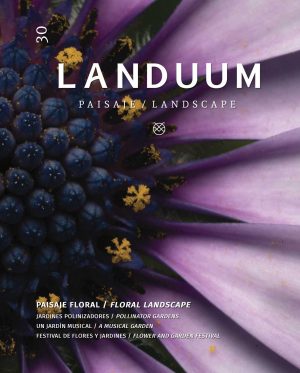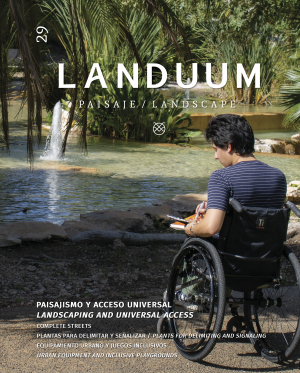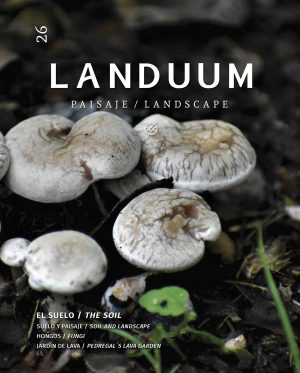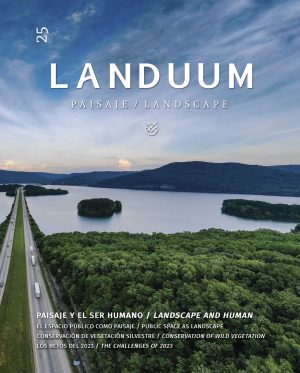Healing in nature
EFFECTS OF THERMAL WATERS IN THE HUMAN BODY.
I am sure that when you have had the opportunity to spend time in nature, whether in a park, in a forest, in hot springs, on the beach, or wherever you want, you have had that feeling of peace, harmony, and connection with yourself. We know that there are benefits of having contact with nature; however, how much do we know about it, does it have a real impact on our health?
Over the years, our lifestyle has changed. Now it is very common to spend more time in urban areas and in contact with technology; therefore, the time you spend in contact with nature has been reduced. When was the last time you were in contact with nature, away from the city?
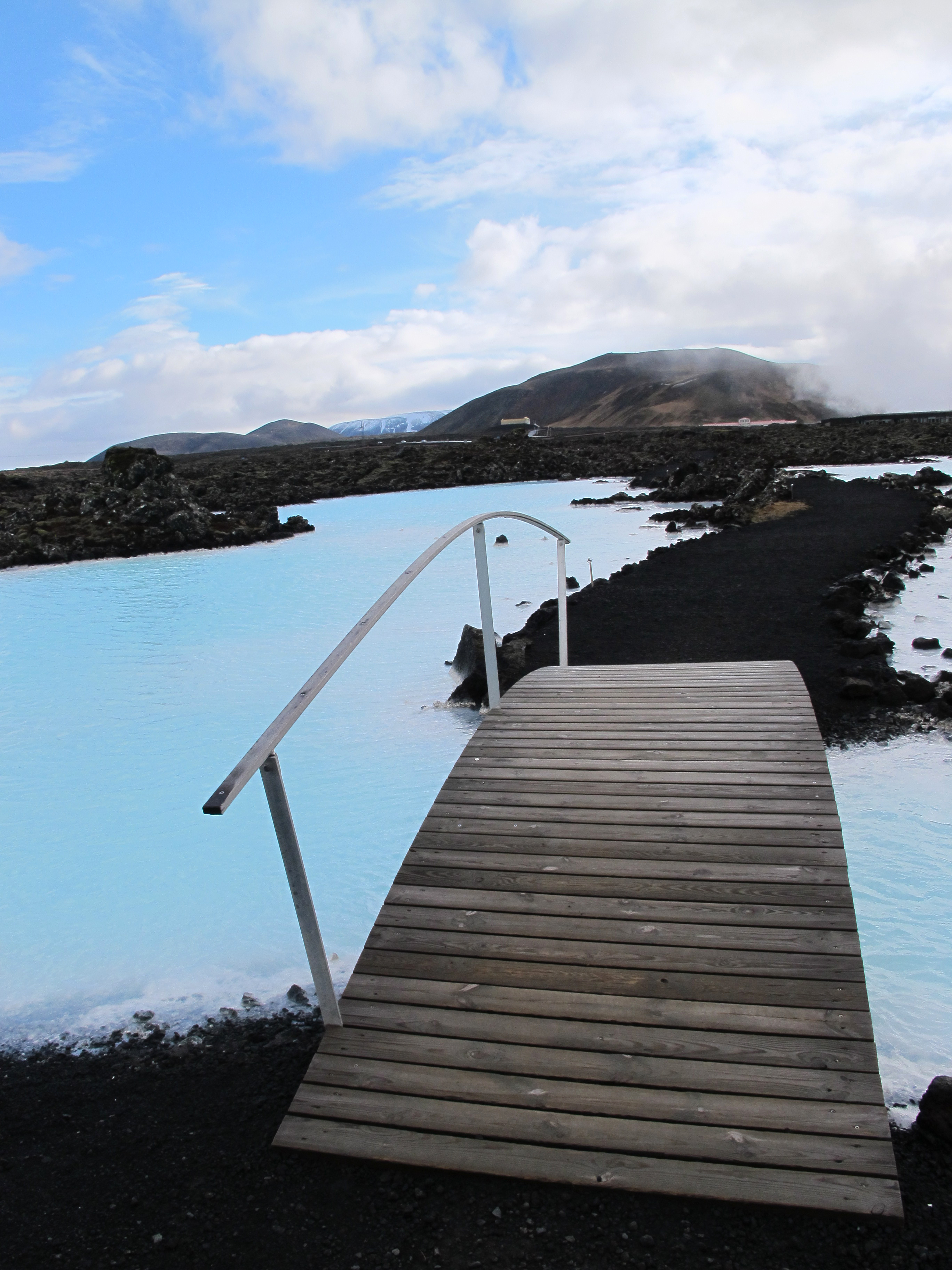
Blue Lagoon, Iceland
Photography: El coleccionista de instantes fotografía
y videos, flickr, CC BY -SA 2.0 , vía creative commons
To date, science has shown that nature brings health benefits, both physical and mental, and specific impacts have been found in certain diseases. For example: decreasing the symptoms of Attention Deficit Disorder andHyperactivity in children, increasing the expression of anti-cancer proteins in patients with cancer, lowering blood pressure in hypertensive patients, among others.1
Hydrotherapy, also known as balneotherapy, thermal waters, or aquatic therapy, is a field that takes advantage of the properties of water (chemical, physical, immunological, and microbiological) as alternative medicine. It has been found to have effects on multiple systems in the body, such as the heart, lungs, blood, intestine, muscles, or even on a hormonal level.2 However, the mechanism by which these effects come about remains unknown.
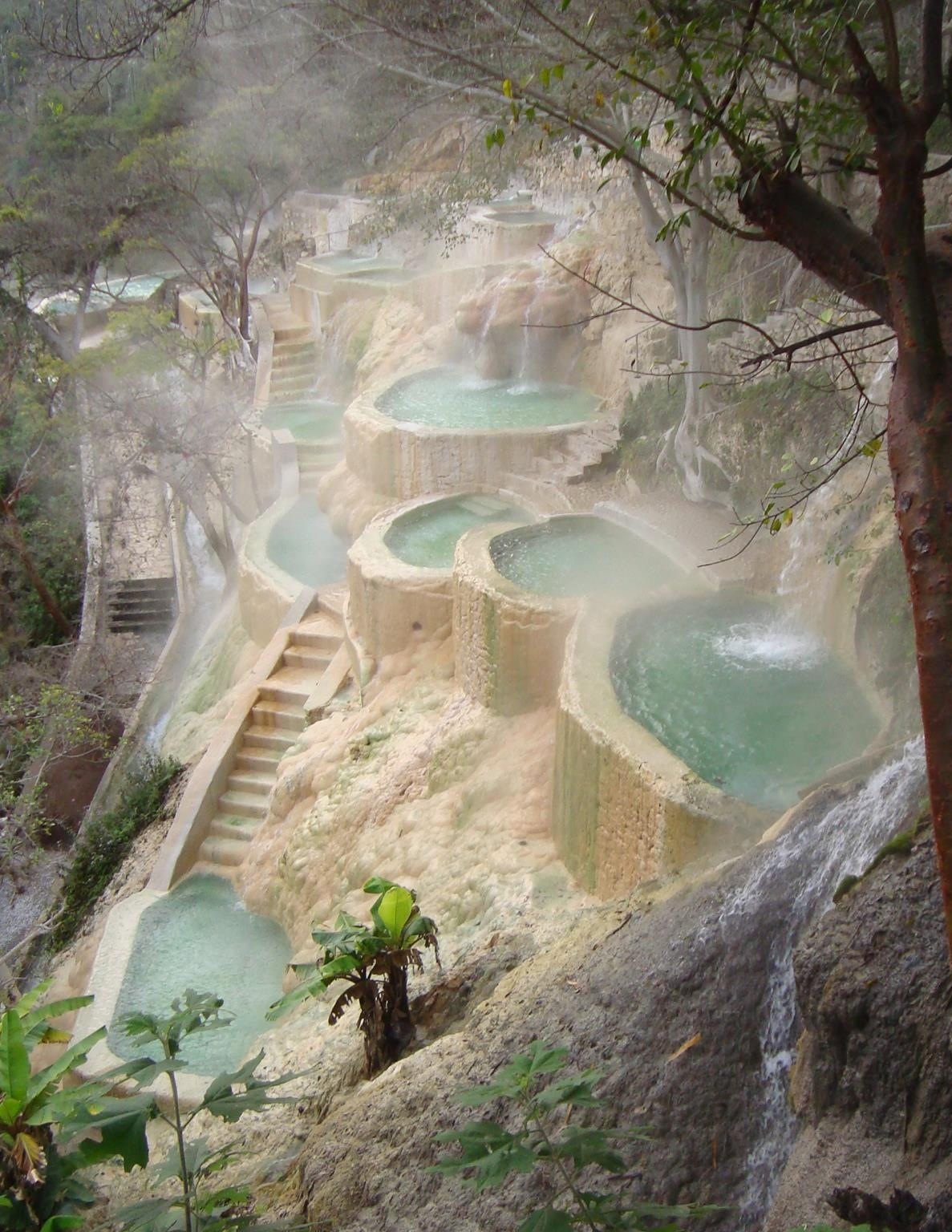
Pozas Tolantongo
Photography: Jocelyn Gonzalez, Flickr, CC BY- SA 2.0, vía creative commons
When we submerge our body in thermal waters (32-34ºC) there is a dilation of the blood vessels with the subsequent increase of the blood flow. On the contrary, when we come in contact with cold water (8-10ºC), blood vessels become constricted, and the use of both techniques alternatively helps to reduce the pain. In addition, when hydrotherapy is combined with exposure to oceans or mountains, the effect increases, as it is enhanced by exposure to nature.
Scientific studies have investigated the usefulness of hydrotherapy for relieving pain in rheumatic diseases such as rheumatoid arthritis, osteoarthritis, spondyloarthropathy, and fibromyalgia, as a complementary therapy, in conjunction with medical treatment. It has also been described as useful for improving functionality in patients with neurological disorders such as muscle paralysis or stroke, and as a rehabilitation method in patients with sports injuries.3
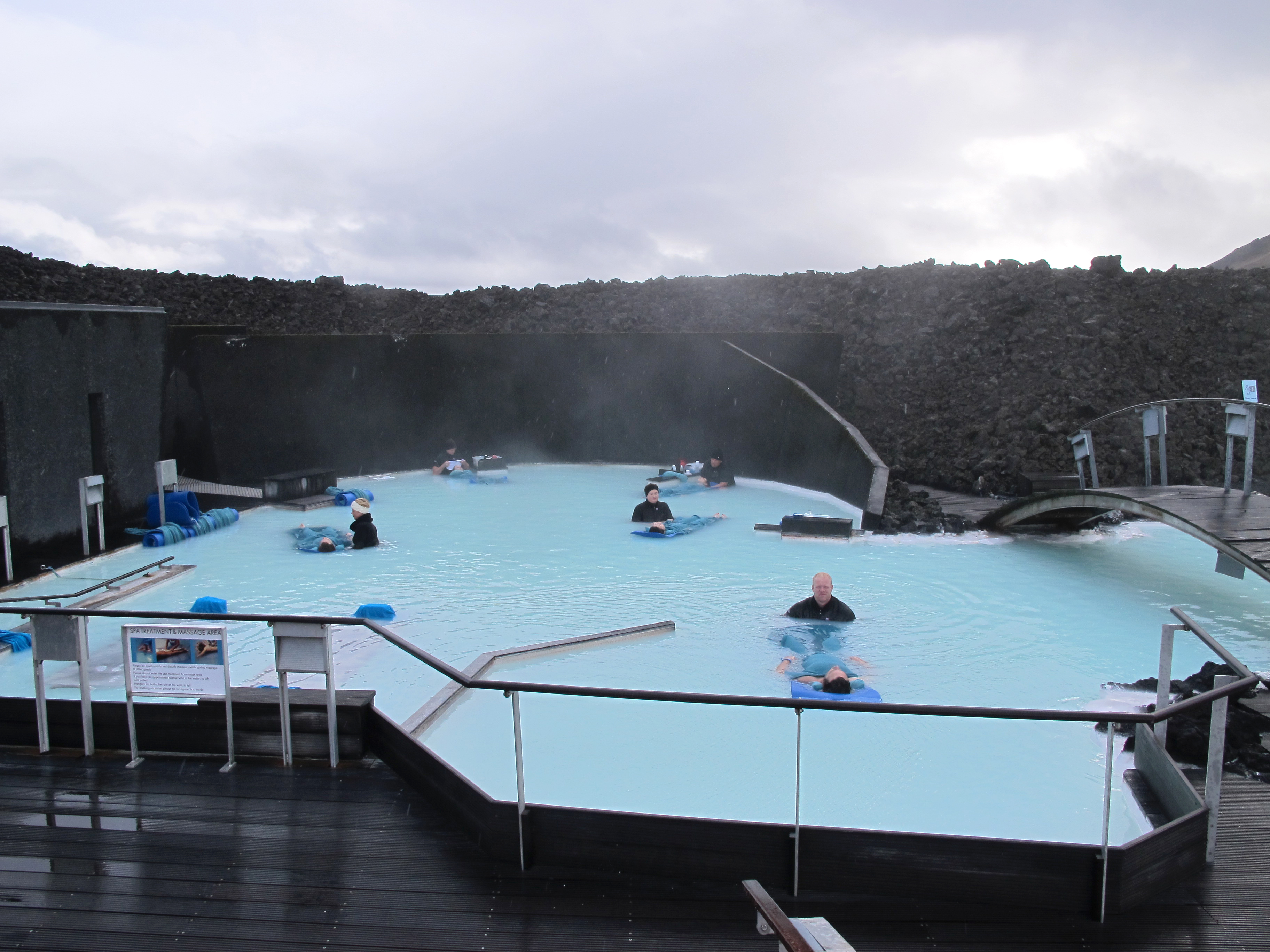
Blue Lagoon, Iceland
Photography: El coleccionista de instantes fotografía
y videos, flickr, CC BY -SA 2.0 , vía creative commons
“Knowing that nature is beneficial for our health should make us reflect on the way we care for it”.
In addition, hydrotherapy has not only demonstrated its positive effects on certain diseases, but it has also been shown that, in healthy people, it can be used to reduce stress, relax muscles and relieve pain.
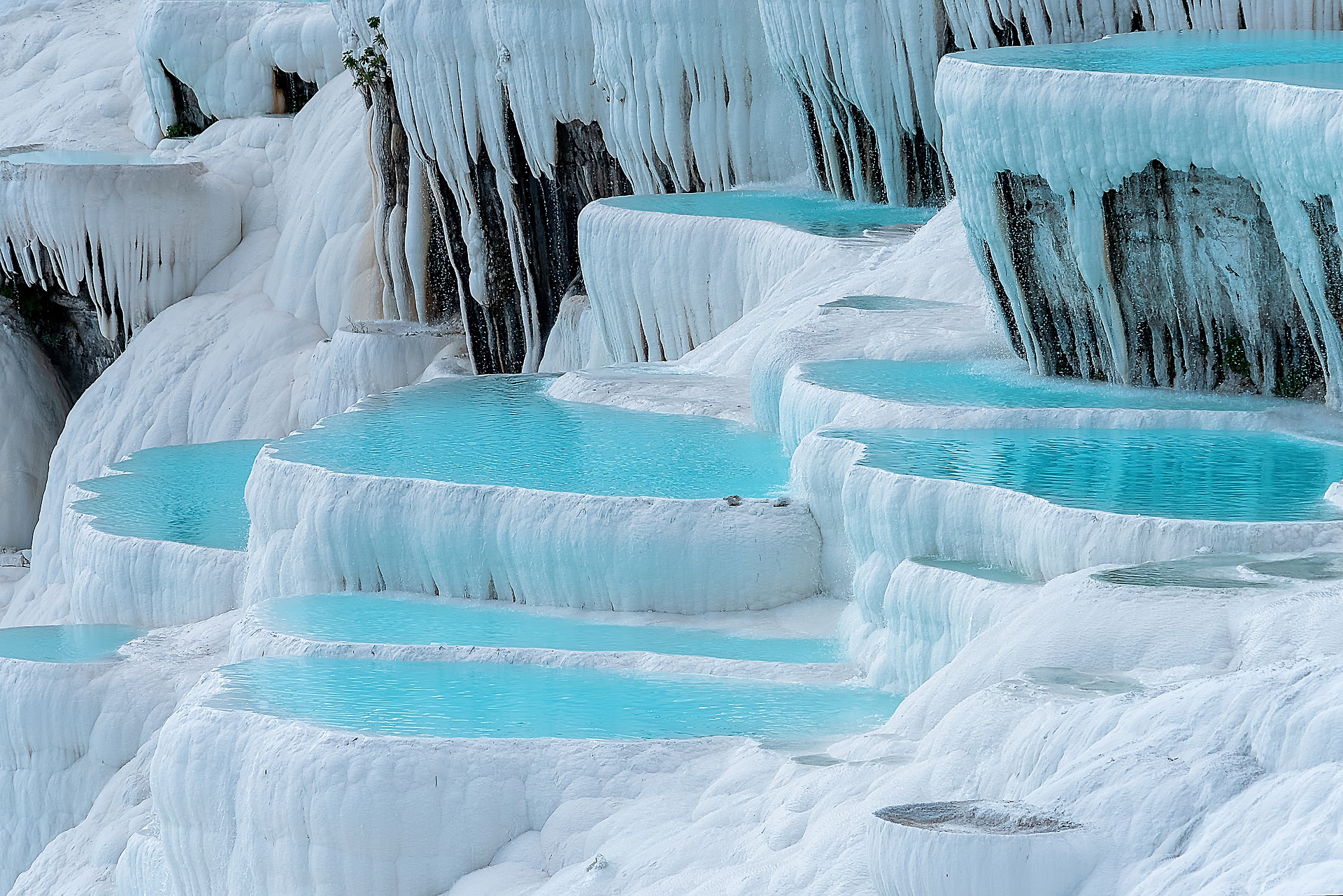
Pamukkale, Turkey
Photography: zhuwei06191973 – Pixabay
Knowing that nature is beneficial for our health should make us reflect on the way we care for it. If simply exposure to nature can improve how humans treat the environment, this would be an excellent opportunity for mutual benefit.
Now that you have this information, what will be your next destination? The time you invest in yourself is also important, so give yourself a break this weekend and make a little trip to enjoy the benefits of nature.
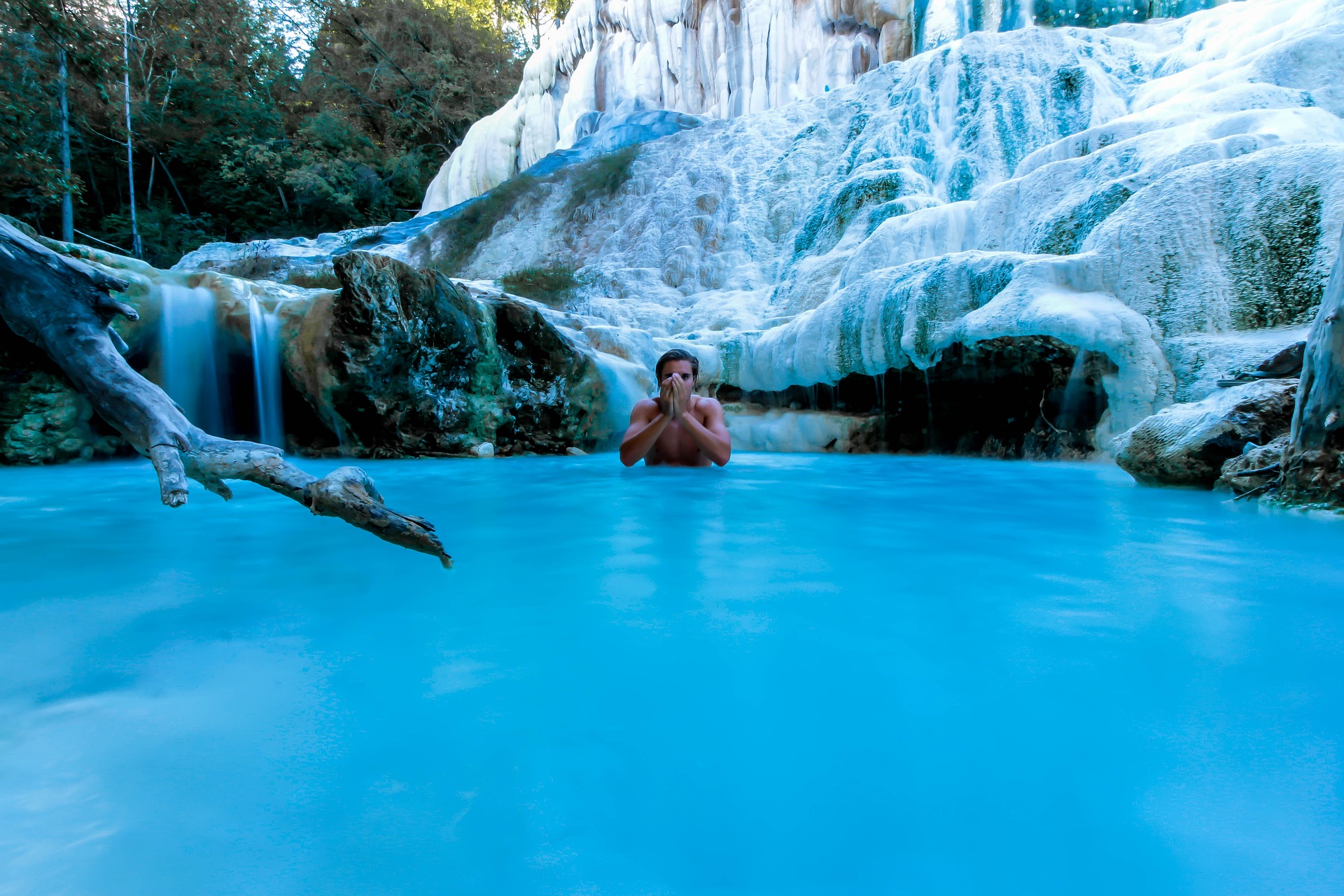
Tuscany, Italy
Photography: nathanfav – Pixabay



